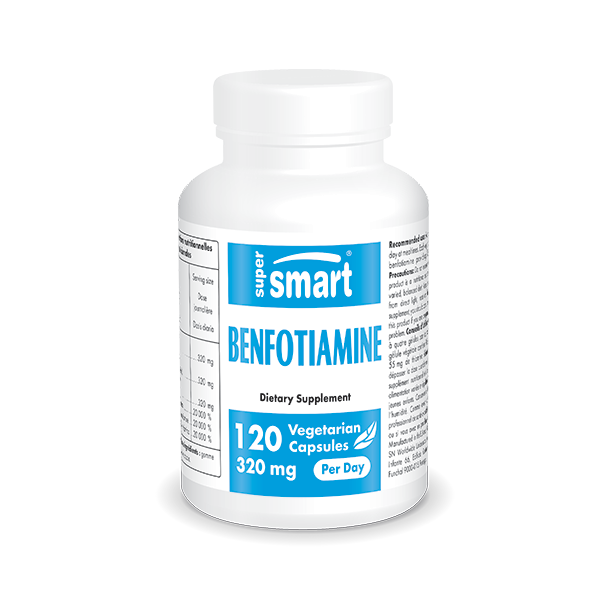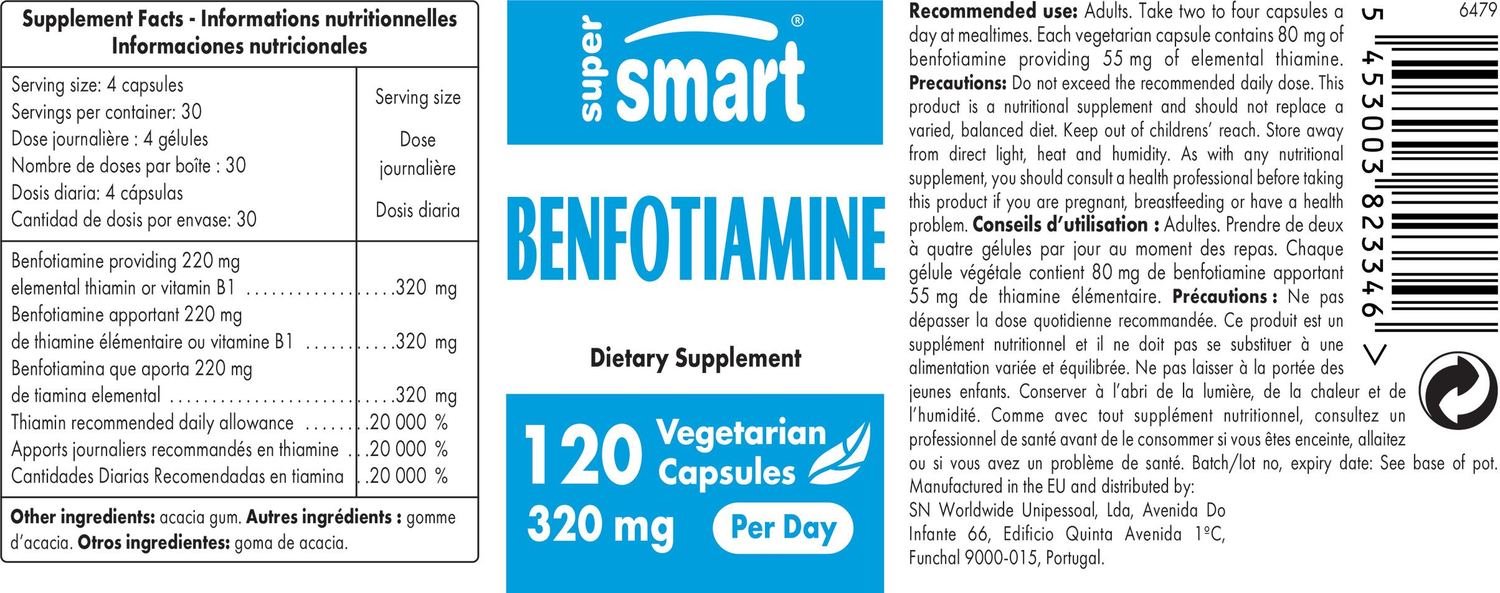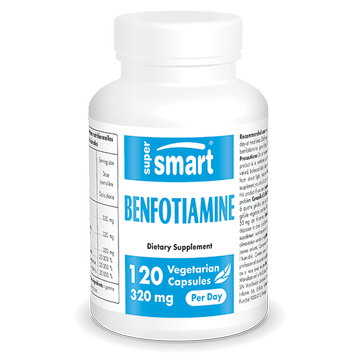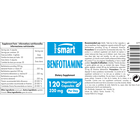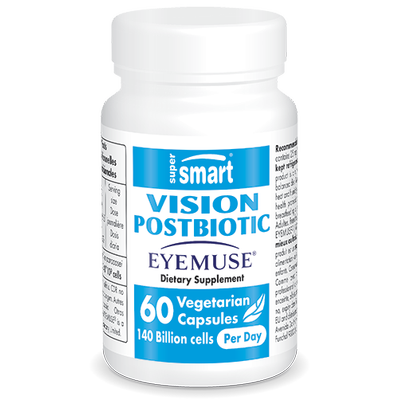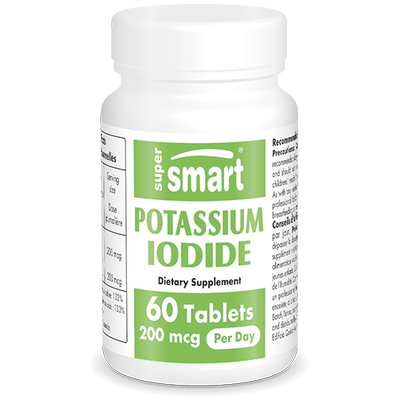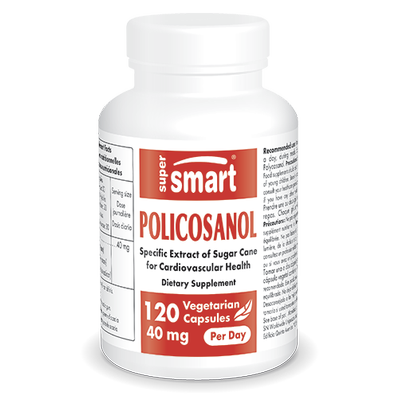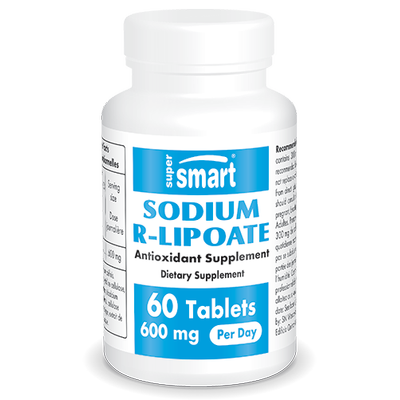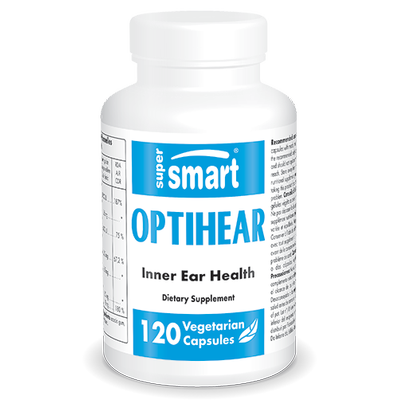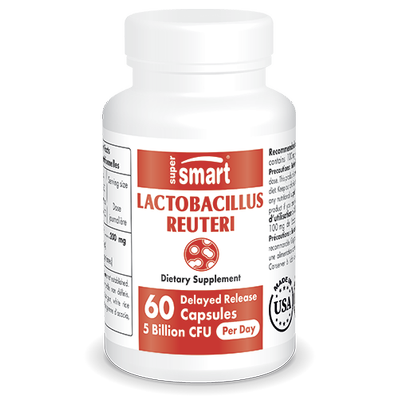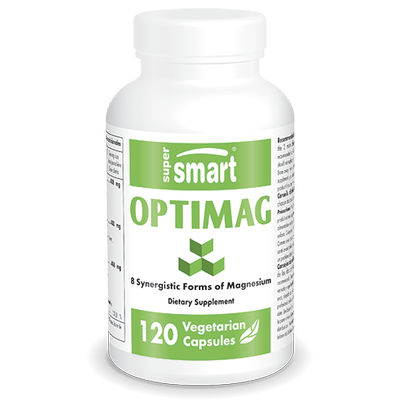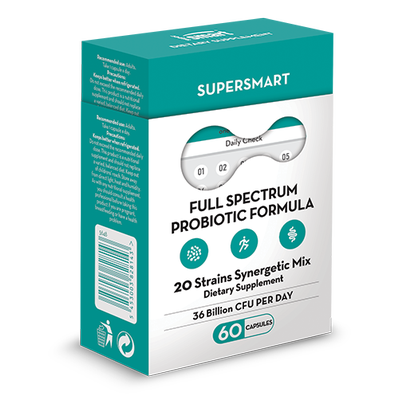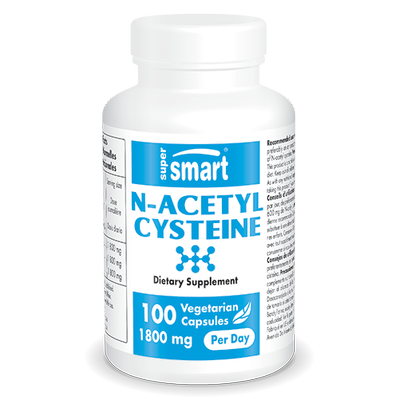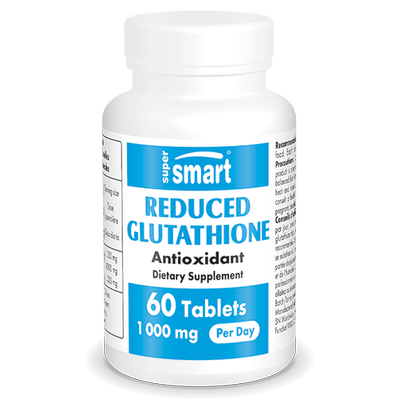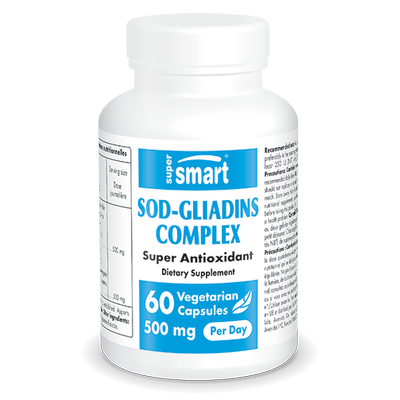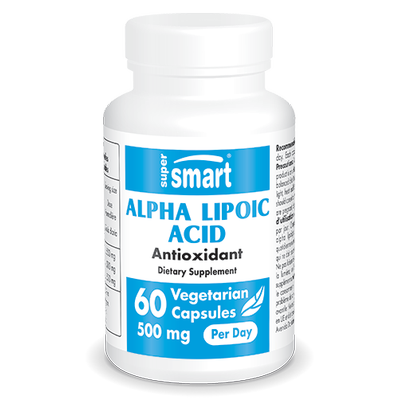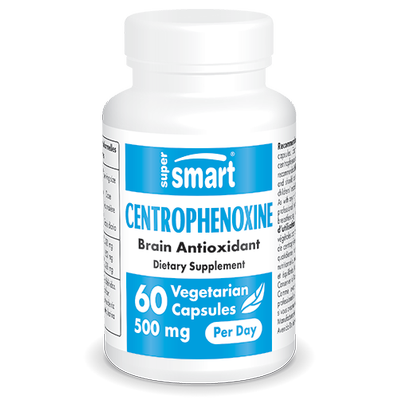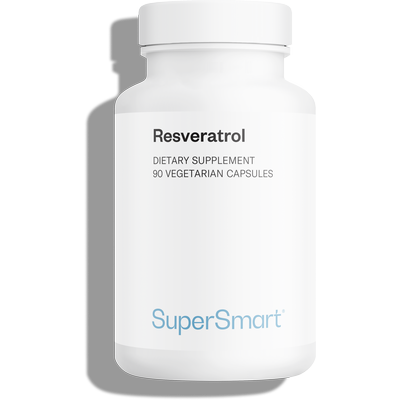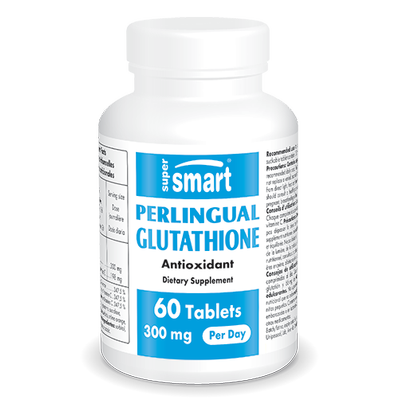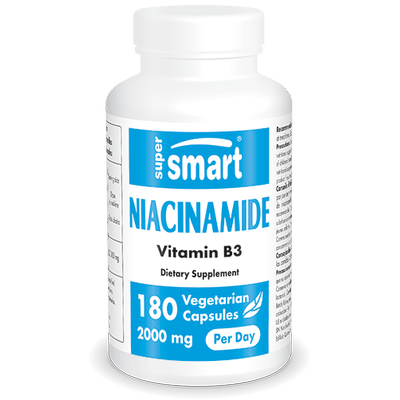In Stock
Benfotiamine
Benfotiamine Capsules (320 mg) – Vitamin B1 Supplement for Neurological Care
Create your offer
Benfotiamine is a potent allithiamine, a group of thiamine (vitamin B1) derivatives. Compared with thiamine, benfotiamine has a highly specific structure that benefits our health. For example, studies show that an allithiamine supplement like benfotiamine passes through cell membranes more easily, remaining longer in the body and thus presenting excellent bioavailability. Benfotiamine is, therefore, often considered a bioavailable and absorbable form of vitamin B1.
What is the Role of Vitamin B1?
While awareness of benfotiamine benefits is relatively low, thiamine is part of the well-known complex of B vitamins. There is not just one vitamin B but a complex of several molecules that act together to help the body function properly. Thiamine, or vitamin B1, interacts in particular with vitamins B2, B3, B5, and B9. Their combined action contributes to a number of the body's metabolic reactions, including:
- The Krebs cycle in which carbohydrates are converted into energy;
- Maintaining nervous system function;
- Muscle function;
- The breakdown of alcohol.
Vitamin B1 is also a precursor of thiamine pyrophosphate or TPP, a coenzyme essential for the activity of certain decarboxylase enzymes.
Benfotiamine vs allithiamine
Benfotiamine and allithiamine are fat-soluble thiamine derivatives and are renowned for their ability to elevate thiamine levels in the body efficiently. This allows both benfotiamine and allithiamine to play a critical role in cellular energy production, nervous system function, and metabolic health. They effortlessly cross cell membranes, including the blood-brain barrier, offering targeted support to neurological wellness.
Despite these similarities, distinctions between Benfotiamine and allithiamine are noteworthy. Benfotiamine is synthetic, structured to mimic the natural thiamine's beneficial effects with increased potency. Its chemical composition makes it particularly effective in managing conditions like diabetic neuropathy due to its role in inhibiting advanced glycation end products (AGEs), molecules implicated in various age-related health issues. Allithiamine, on the other hand, is naturally derived from garlic and has a unique disulfide bond that contributes to its effectiveness and bioavailability. Though both have neurological benefits, some users prefer allithiamine for its natural origin.
What are the Associated Benefits of Benfotiamine?
As well as preventing or correcting vitamin B1 deficiency, supplementing with benfotiamine also offers significant therapeutic potential. In fact, a lack of thiamine can be observed in several diseases, which is why it is now used in a preventive or therapeutic capacity, amongst others:
- Supporting withdrawal from alcohol dependency to prevent deficiency caused by chronic alcoholism;
- The treatment of metabolic disorders;
- The care of certain neurodegenerative diseases;
- The prevention of fatigue, stress, and loss of appetite;
- The treatment of chronic diarrhea.
Why take Benfotiamine Supplements?
Given the importance of vitamin B1 to our health, our dietary supplement, Benfotiamine, has been specifically formulated to prevent the risk of deficiency. Inadequate intake or poor absorption of the vitamin can lead to deficiency and subsequent health problems. A lack of vitamin B1 is particularly common in alcoholics, people suffering from chronic intestinal diseases or acute infections, those taking diuretics, or those who eat a lot of carbohydrates. Without sufficient B1, deficiency can manifest in loss of appetite, weight loss, and fatigue. In more serious cases, thiamine deficiency can trigger diseases such as beriberi. This is characterized by neurological impairment, reduced mental capacity, mobility problems, disturbed balance, and even psychosis. Supplementing with benfotiamine can thus prove vital in preventing deficiency in vitamin B1.
Thiamine cannot be produced or stored by the body, so as with all vitamins, it must be obtained from an external source. The recommended daily amount, estimated to be around 1.5 g for adults, therefore, has to be met through the diet. Foods rich in vitamin B1 include brewer's yeast, nuts, wholegrains, and offal, but while these are excellent sources, thiamine is a water-soluble, heat-sensitive vitamin that is easily destroyed during preparation and cooking. Hence, the development of thiamine supplements, which protect the vitamin and provide an optimal intake. Delivered in capsule form, these supplements preserve the vitamin's quality until it is absorbed by the body.
Our benfotiamine supplement has been developed to provide an optimal level of vitamin B1. Each capsule contains 80 mg of benfotiamine, providing 55 mg of elemental thiamine, with a suggested dose of 2 to 4 thiamine capsules a day to be taken with meals. This dose of vitamin b1 capsules, however, be adjusted in line with your needs and the advice of your therapist.
In addition to vitamin B1, you may also be interested in benefiting from the effects of other B complex vitamins such as vitamin B3, vitamin B6, and vitamin B12.
Curb Alzheimer's and other neurological diseases
Benfotiamine vitamin B1 (thiamine) has become a topic of interest in the ongoing battle against Alzheimer's and other neurological diseases. Research is increasingly highlighting the potential benefits that this fat-soluble variant of vitamin B1 may offer. Unlike regular thiamine, benfotiamine is more easily absorbed by the body, making it potentially more effective in addressing thiamine deficiency – a condition believed to exacerbate cognitive decline.
Scientific studies suggest a correlation between increased thiamine levels and improved cognitive function. Benfotiamine's enhanced bioavailability means that it may be particularly useful in elevating thiamine levels, thereby possibly slowing the progression of neurological disorders. It is thought to act by supporting cellular energy production and offering antioxidant properties, which play a crucial role in protecting the brain from oxidative stress and inflammation – two factors implicated in the development and progression of Alzheimer's.
While the existing body of research is promising, it is essential to remember that more comprehensive studies are needed to confirm the efficacy of benfotiamine in combating Alzheimer's and other neurological diseases. It is always advisable for individuals considering benfotiamine supplementation to consult with a healthcare professional to ensure it is appropriate for their specific health needs and conditions.
Side Effects of Benfotiamine Capsules
When considering the addition of benfotiamine supplements, or any other type of supplement, to your diet, conducting thorough research on the potential side effects of benfotiamine capsules is paramount. Each individual's body reacts differently to supplements, and being informed can help make wise and safe health decisions.
While certain individuals may indeed gain added nutritional value, it is essential to approach supplementation with a well-rounded perspective. A balanced view, considering both the benefits and potential side effects, allows individuals to make informed decisions that prioritize their overall well-being.
Consulting with a healthcare professional is a crucial step in this process. They can provide personalized advice based on an individual’s unique health status, needs, and potential interactions with other medications or underlying health conditions. This personalized advice is instrumental in effectively navigating the complex world of dietary supplements.
Remember, being informed is being empowered. While supplements like benfotiamine can offer health benefits, understanding the full spectrum of their effects on your body is essential. Equip yourself with comprehensive knowledge, and always seek professional medical advice to ensure your path to better health is both safe and effective.
Need help?
Phone
+1 (786) 522-3907
From 9 am to 6 pm (EST)
You may also like

